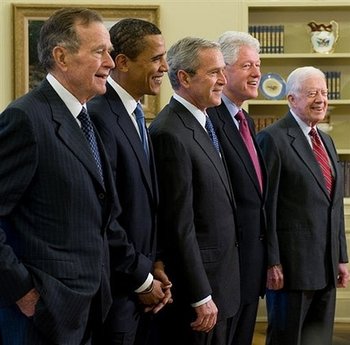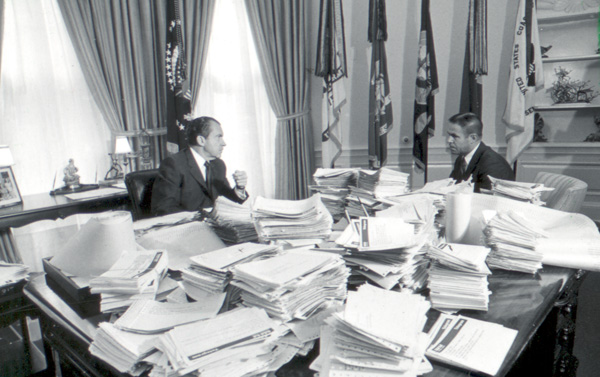
by Bret Capranica | Apr 1, 2011 | Featured Articles, Pastoral Ministry, Preaching, Worship
Carefully Think Think back on the series we have done on worship and write down how you would answer the question ““ “what defines genuine biblical worship?” What did Jesus mean by “Spirit and truth” in John 4:24? How did you come up with that answer? How does that answer fit with what Jesus and the woman at the well were discussing in the surrounding context? Read through Ephesians 5:18-19. What is the connection between being filled with the Spirit and singing? In addition to edifying one another and adoring God, what other elements about singing do you find addressed in Ephesians 5:19? Prayerfully Meditate Throughout the series on worship, what has been the most impactful truth for you personally? Why? How has your thinking about music changed, been reaffirmed, or been enhanced by thinking through Revelation 4 & 5 and Ephesians 5:19? Consider what “singing and making melody in your heart to the Lord” means and how it should affect your singing when the body of Christ gathers. We all have personal preferences when it comes to singing. List what yours are. What Scriptures would you associate with those preferences? Read through Philippians 2. How would this passage impact the way we view preferential issues in regard to music? Actively Respond Read through Revelation 4 & 5 again and reflect on how these passages should enhance the way you think about our public gatherings on Sunday. Read through Ephesians 5:18-19 with your family and discuss how these verses should impact you when you gather with God”™s people and sing this Sunday. Pray for those who will be leading...

by Bret Capranica | Apr 1, 2011 | Featured Articles, Presidential History, Time/Life Management
Richard Nixon”™s approach to running the West Wing reshaped the role of the Chief of Staff to the point that it is still largely used to this day in the Office of the President. Interestingly, Eisenhower had a Chief of Staff, but most decisions were made by Cabinet Secretaries. Kennedy did not have a Chief of Staff and operated in a more free style with no intentional chain of command as to how decisions were made. Nixon changed the approach so that decisions were made in the White House and executed then by Cabinet Secretaries. He divided White House responsibilities into 3 areas: Domestic Council, National Security Council, and the Office of the President. Nixon wanted information mostly in written form and received it only from a few people with whom he would discuss it. They created the position of the Staff Secretariat who distributed the paper work appropriately. Trust was the most important commodity. Nixon was a very private person and preferred to consider succinct written proposals, summaries or analyses, with a few people. Decisions were made in the White House and Cabinet Secretaries executed those decisions. 7:30 a.m. was the start time for most White House senior officials. Nixon was careful with his public activities and focused on what would be the most significant issues. The president spent a tremendous amount of time on fewer things. Haldeman had a lack of ego, a passion for anonymity, but a self-confidence in his own ability. Trust and focus were his emphases. The story of the day, everyday, was “Think it Through!” Everything was thought through to the maximum. Every day at 2:00...

by Bret Capranica | Mar 29, 2011 | Featured Articles, Presidential History, Time/Life Management
Last year on President”™s Day, Kelly and I took a trip down to Yorba Linda and the Richard Nixon Library and Foundation. Admission was free, so we joined some 5,000 other people taking advantage of the opportunity. The highlight of the day was the panel lecture on “The Effective Use of the President”™s Time.” The panel was made up of four men who served in the West Wing of the White House and, more specifically, worked directly under H. R. “Bob” Haldeman, Nixon”™s Chief of Staff. They discussed the climate of which Nixon assumed the presidency, how foreign trips were staffed, and most importantly, how they helped the President make the best use of his time. Nixon”™s end is usually where we begin in thinking about his time in office and tends to dominate the flavor of the entirety of his presidency. That is unfortunate. Many, initiatives, policies, and governmental advancements that remain in place today were initiated during his years in the White House. In fact, the entire structure of the modern day Office of the President was essentially created during his tenure and remains in tact today. The lecture was a fascinating look into the Presidency. Today and Friday I”™ll post my bulleted notes from the lecture. On Saturday, I”™ll give a few thoughts on how these themes could bring helpful consideration to an ordinary pastor”™s ministry. Nixon was friendly, but we were not friends. Nixon lost the 1960 election because he tried to run the campaign himself. In 1968 (the year he won the Presidency), he put key managers in every position. Haldeman issued a memo in the 1968...

by Bret Capranica | Mar 24, 2011 | Featured Articles, Pastoral Ministry, Worship
Carefully Think Read through Psalms 95-100; 145-150 and make a list of ways the psalmist outwardly expressed what he was inwardly delighted with. Why is music such a controversial element of church life? Read Ephesians 5:19 and list what you learn about the role of music in the life of the church. What role did music play in Exodus 15:1-18; 1 Samuel 16:14-23; 1 Chronicles 15:22; 16:4-6; 23:3-5; 25:1-7; 2 Chronicles 20; Nehemiah 12:42 Prayerfully Meditate How are you living out the expressions of praise you found in the psalms mentioned above? What keeps you from expressing your praise in the biblical ways you see in the Scriptures? How could Ephesians 5:19 affect your approach to singing this week? Actively Respond Pray for those who will be leading the church in our corporate gathering on Sunday. Pray that they will have a focused attention in leading the entire church in a biblical manner. Pray for all those who will be involved in the worship service, from instrumentalists to sound technicians to ushers. Pray that all we do will be done decently and orderly and to God”™s glory, and that we will be free from unnecessary distraction. Meditate often on Ephesians 5:19 and how it should instruct us regarding singing. Meditate on the lyrics to the songs we will be singing this Sunday. If you would like to hear a sample or actually purchase the song, click on the links below. We hope to regularly provide you with audio links to the songs we will sing so you can begin to build a personal library of music we use corporately....

by Bret Capranica | Mar 17, 2011 | Featured Articles, Pastoral Ministry, Preaching, Worship
Carefully Think Write down terms that come to your mind when you think about worship in the Old Testament. What terms come to mind when you think of worship in the New Testament? When you think about our church”™s worship gatherings, what words immediately come to mind? If the worship services at church were exactly as you would want them, what would they consist? Prayerfully Meditate Consider the answers to your questions above in light of what we have been learning together in Revelation 4 & 5. How many of your expectations match the emphases of worship we discussed in last week”™s sermon? What do you find that helps you to be fully prepared to worship God on each Lord”™s Day? What do you find that tends to hinder you from your own preparation for worship each week? How do you prepare yourself to come and worship with God”™s people each week? Read through John 4:20-26. What did the Woman at the well want to emphasize about worship? What did Jesus emphasize about worship? What are the key differences? Actively Respond Pray for those who will be leading the church in worship this week. Pray that they will have focused hearts and minds to lead us. Pray for yourself to have a sharp mind to see who you can serve as you come to worship. Spend specific time reading John 4:20-26 and preparing your heart to receive from God”™s Word. Meditate on the lyrics to this week”™s songs. What are they saying about God? What do they reveal about us? How do these songs reflect the major themes of...

by Bret Capranica | Mar 14, 2011 | Featured Articles, Pastoral Ministry, Preaching, Worship
How is heaven affecting earthly worship? Read through Revelation 4 & 5 again, asking, how should this affect the way we gather on Sunday morning. Read through the following questions that were asked at the conclusion of yesterday”™s message and think through your responses to each of them: How does you life acknowledge the centrality of God because it is singularly directed? How do your life decisions exalt the authority of God because those decisions are thoroughly biblical? How does your lifestyle emit the intensity of God, because you respond with passionate God-driven emotions? How is your attitude about life sobered by the severity of God, because you are full of a profound awe-struck fear of God”™s greatness? Do you carry yourself on a regular basis in such a way that you are affected by the majesty of God, impacted by the stunning regality of who God is? How do you live in a way that comprehends the transcendence of God – so you base your living in a very unique and dissimilar way than the norms of the world? Could someone examine your life, your speech, your decisions, your character, your love, your emotions, your anxieties, your confidence and see that you are steeped in rehearsing God”™s redemption through Christ? Review the sermon manuscript below to review the details, or listen again to the message HERE. Heaven help our worship pt 1 View more documents from Summit Woods Baptist...













